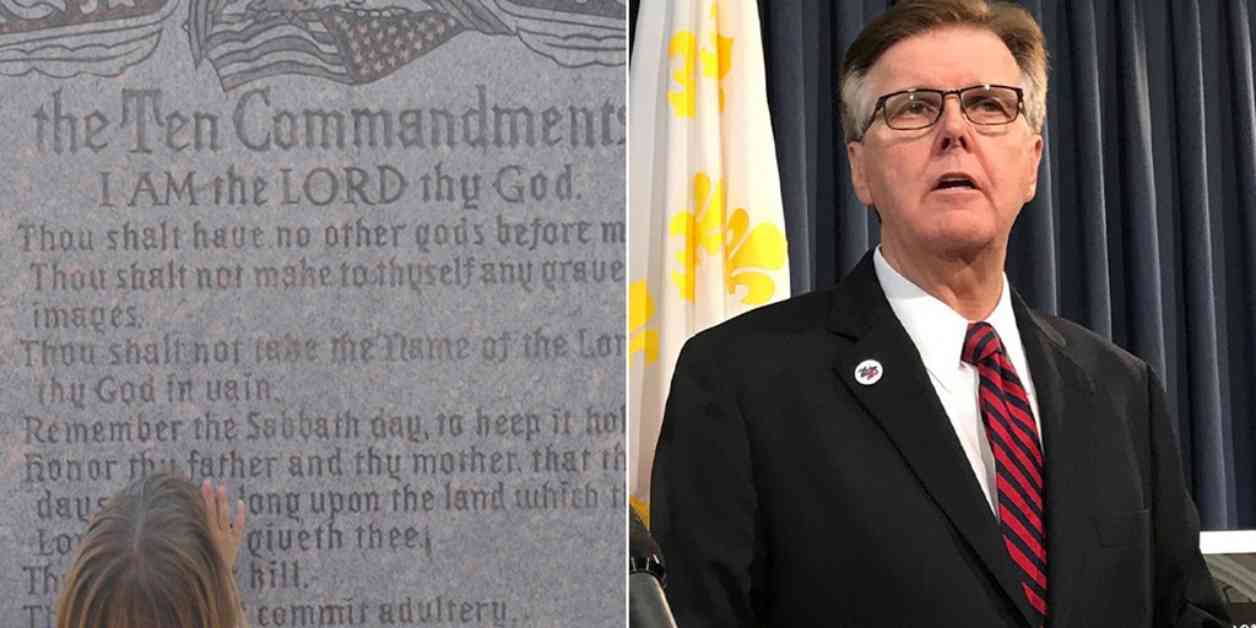Texas Lt. Gov. Dan Patrick has made a commitment to passing a bill that would require the display of the Ten Commandments in public school and college classrooms. This decision comes shortly after a similar law was passed in Louisiana. In a statement on social media, Patrick expressed his disappointment in Texas state House Speaker Dade Phelan for not supporting a previous Senate bill that would have mandated the display of the Ten Commandments in schools. He promised to reintroduce the measure.
The proposed bill, known as SB 1515, aims to reinstate the tradition of recognizing America’s heritage by displaying the Ten Commandments in classrooms across Texas. Patrick emphasized the importance of these commandments as a fundamental foundation of American and Texas law. He criticized Phelan for not prioritizing this initiative, stating that Texas should have been the first state to implement such a law.
The bill would require all public elementary and secondary schools in Texas to have the Ten Commandments displayed in each classroom, a requirement that is currently not in place. This move has sparked a debate on the separation of religion and state in public education.
Louisiana recently became the first state to mandate the display of the Ten Commandments in public school classrooms. This development has raised concerns among civil rights groups, including the American Civil Liberties Union (ACLU). They argue that such displays could have a coercive effect on children, given the religious diversity of the nation.
Legal experts, such as Notre Dame Law School Professor Richard W. Garnett, have weighed in on the issue, suggesting that other states may follow Louisiana’s lead. The constitutionality of these measures will likely be challenged in court, as opponents argue that public schools should remain neutral in matters of religion.
In response to the growing controversy, the ACLU and other civil rights groups have released a joint statement condemning the imposition of religious beliefs in public schools. They assert that individuals should have the freedom to practice their own religious beliefs without interference from the government.
As the debate over the display of the Ten Commandments in public schools continues, it remains to be seen how this issue will unfold in Texas and other states. The clash between religious freedom and the separation of church and state is a complex and contentious issue that will require careful consideration and legal analysis moving forward.




